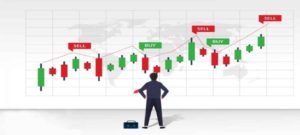- Aprendendo o básico
Os hábitos de aprendizagem percorrem um longo caminho. Aprendizes e re-aprendizes são igualmente importantes para iniciantes e empreendedores mais experientes, principalmente quando se trata de situações avançadas. Como qualquer outro trabalho, é difícil ou quase estranho poder trocar informações e valores sem entender. Este é um ótimo exemplo de leitura e observação de muitos negócios. Você pode conferir o blog IQ Choices: Use a área de checkout para encontrar histórias de qualquer coisa que lhe interesse. Este é um ótimo lugar para começar a aprender o básico da negociação rápida.
2. Fazendo pesquisa
O conhecimento do básico é a base sobre a qual um empreendedor pode avançar. De qualquer forma, não é concebível que os abertos reivindiquem isso. A publicidade está sempre mudando e você deseja entender o porquê. Depois de selecionar um fundo específico para fazer negócios, vale a pena explorar. Seja ações, parceiros financeiros ou criptomoedas – sempre aprofunde, descubra o que aconteceu ou aconteceu no passado e descubra o máximo de informações possível sobre isso.
3. Confira as novidades
Nada dura para sempre e a situação do mercado pode mudar em um piscar de olhos se notícias agressivas forem publicadas. É importante ler as notícias e encontrar informações relevantes para as necessidades da sua fonte e úteis para você. O hábito de analisar as notícias da manhã pode ajudar os clientes a entender a conexão entre a atividade gráfica e a realidade do mundo real. Estar vigilante e por dentro das notícias é uma habilidade importante para traders e investidores.
4. Use a pesquisa clínica
A pesquisa forense é uma ferramenta poderosa que é amplamente utilizada pelos profissionais de marketing. Mesmo profissionais de marketing inexperientes aprenderão sobre pelo menos duas ou três marcas líderes e começarão a usá-las em seus planos. É claro que nenhum índice pode garantir o sucesso completo, mas eles ajudarão a analisar as tendências do mercado. A seleção de indicadores específicos pode ajudá-lo a avançar em sua estratégia, portanto, fique de olho.
5. Adote um plano de marketing
Outro trabalho vital para fora e, sem dúvida, o livro é extremamente favorável sob um plano de promoção. Criar um plano que descreva todas as estratégias que um trader usa é eficaz por vários motivos: estabiliza as atividades do trader, regula o comportamento do trader e não permite que as emoções interfiram. Também pode ser uma boa prática para traders impacientes que assumem risco de capital em vez de juros. Manter um diário de negociação é uma maneira de olhar para um negócio do passado e usar esse conhecimento para melhorar o sistema de negociação. Atenção.
6. Gerenciamento de riscos
Alguém poderia pensar que a coisa mais importante na negociação é ganhar dinheiro, mas o oposto é verdadeiro – a coisa mais importante é não perder dinheiro. Em vez de economizar seu capital e desacelerar, em vez de perder barulho e dinheiro, é uma habilidade e prática que um trader precisa desenvolver. Existem muitos aspectos do gerenciamento de risco, desde a elaboração de um plano de negociação até a conclusão de 2%. Escolha o que funciona para você.
7. Entre em contato com outros comerciantes
Converse com outros profissionais de marketing sobre o mercado e conheça as experiências de outras pessoas que podem se beneficiar de novos conhecimentos e interação social. No entanto, seguir cegamente o conselho de outras pessoas não é uma boa ideia: pode levar a falhas comerciais ou práticas enganosas de uma maneira muito ruim. Equilíbrio é a chave – ouça e pense no que os outros têm a dizer, mas sempre use seu próprio conhecimento e experiência ao tomar a decisão final.




